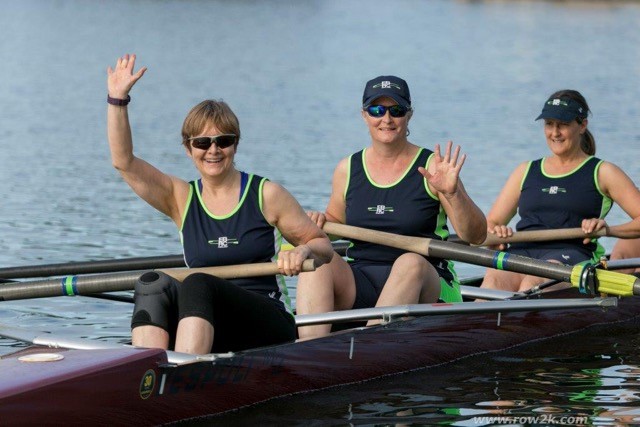
Margaret Grover, Rowing, Cycling, Skiing
Before the associates arrive, before the phone starts ringing, before the sun has even peaked over the Oakland hills, the head of Wendel Rosen’s employment practice Margaret “Maggie” J. Grover is propelling a racing shell through the Oakland estuary.

Sometimes, she and fellow members of the East Bay Rowing Club glide from the estuary between Alameda and Jack London Square almost all of the way to the Oakland Airport. Some days they circle the little-known islet called Coast Guard Island, and once, they even rowed passed the container cranes and the cargo ships and to the Bay Bridge.

“You have to be careful rowing out there because it can get a little choppy,” Grover cautioned. But never does she fear tipping over. “I row with the best group of all-professional women.”
They range in age between 23 and 80 years old and many have demanding jobs. They all share a drive for success, and the boat is a place where they can celebrate competition and achievement individually and as a group.
“We are established in our careers and we are all competitors. We fight for the seats on the boat among one another before we go to competitions, and during races we make sure that we leave it all on the water,” said Grover, a lifelong athlete of individual sports who as a child, skied and opened her own local swim school. Her cycling expeditions include the infamous Tour of the California Alps, dubbed the “Death Ride,” crossing five mountain passes starting in Markleeville, which she did for Team in Training to raise money for the Leukemia & Lymphoma Society.
“The togetherness is an amazing part of rowing. I had never played a team sport before. In rowing, you really need to sync up. Timing is so important. Your oars have to hit the water at the same moment. Your legs have to drive down at the same moment. Your seats have to move back at the same moment. The thing about rowing is that you can’t think about anything other than rowing.”
So for nearly two hours every morning, there is no office, no elusive solution, no noise. Just the water and its own tests, trials and mysteries.
“It certainly helps me de-stress. It gets me up and going. Every moment in rowing, there are so many moving parts that you can’t focus on anything other than the stroke you are on,” Grover explained. “Sometimes it is almost meditative, swinging with the rhythm of water and the other rowers. So when I get to work, I am really focused.”